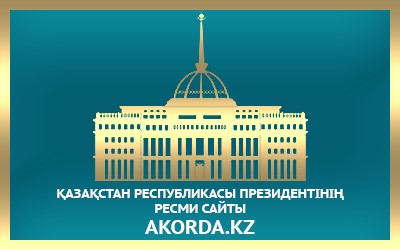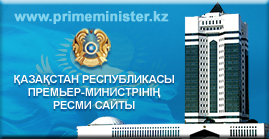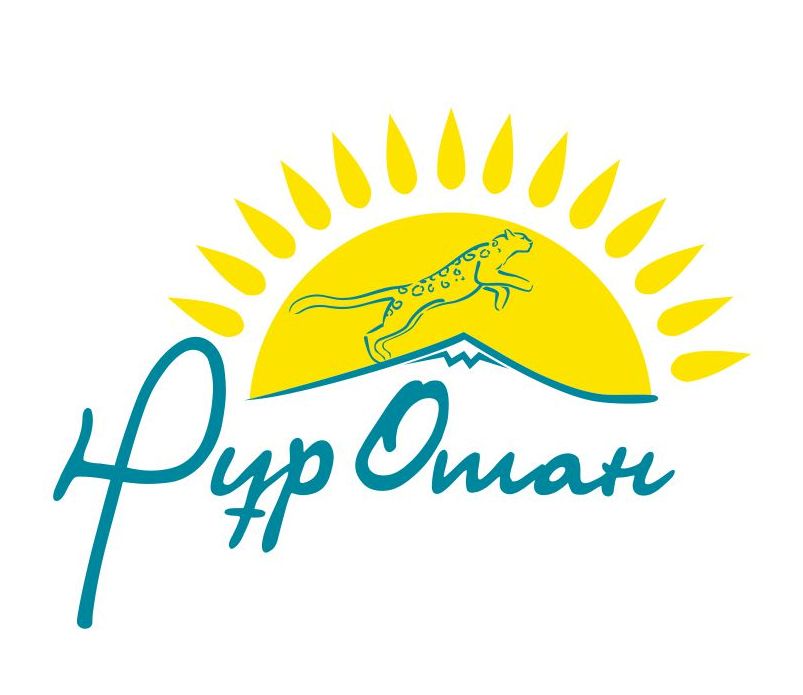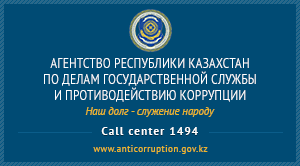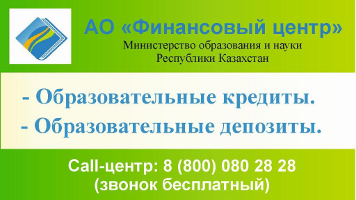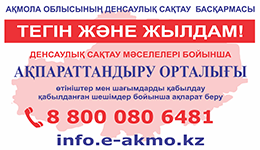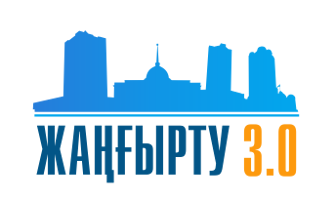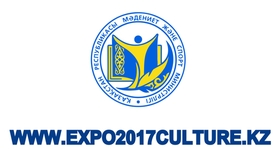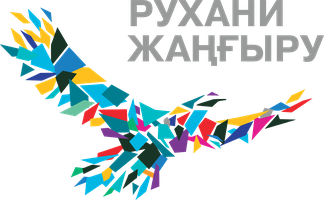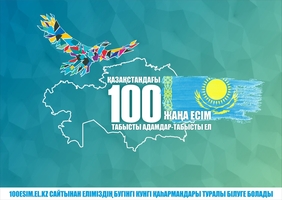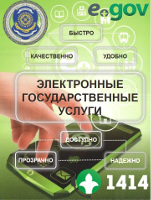
Пояснительная записка.
Объем знаний и умений по
английскому языку, ориентированный на общеевропейский стандарт, требует от
выпускников довольно обширные и глубокие знания в области лексики и грамматики,
высокий уровень владения навыками аудирования, говорения, чтения и письма.
К окончанию 11 класса у учащихся
должна сложиться довольно основательная база знаний, умений и навыков в
овладении иностранным языком. Для успешной сдачи ЕНТ возникает необходимость в
определенных обобщениях, систематизации усвоенного материала, дифференциации
лексических и грамматических явлений языка.
Предлагаемый сборник
предназначен для более широкого получения знаний страноведческого характера,
вопросов, связанных с историей, культурой страны изучаемого языка, содержит
глубокий информационный материал по использованию грамматики.
«Бекітемін»
«Утверждаю»
Директор
школы:
____________________
«___» _________ 2015г.
План по подготовке к ВОУД
2015-2016 учебный год
|
№ |
Тема |
Дата |
Примечание |
Вид контроля |
|
1 |
Diagnostic test |
|
|
Тестирование |
|
2 |
ABC |
|
|
Упражнение. Тестирование |
|
3 |
Phrasal Verbs |
|
|
Упражнение. Тестирование |
|
4 |
Существительное |
|
|
Упражнение. Тестирование |
|
5 |
Прилагательное |
|
|
Упражнение. Тестирование |
|
6 |
Числительное |
|
|
Упражнение. Тестирование |
|
7 |
Местоимение |
|
|
Упражнение. Тестирование |
|
8 |
Conditional Sentences ( Условные предложения |
|
|
Упражнение. Тестирование |
|
9 |
The Infinitive (Инфинитив |
|
|
Упражнение. Тестирование |
|
10 |
The Gerund (Герундий ) |
|
|
Упражнение. Тестирование |
|
11 |
The Participle ( Причастие) |
|
|
Упражнение. Тестирование |
|
12 |
Оборот «used to» |
|
|
Упражнение. Тестирование |
|
13 |
Passive Voice (Страдательный залог |
|
|
Упражнение. Тестирование |
|
14 |
Future–in–the–Past ( Будущее время в прошлом) |
|
|
Упражнение. Тестирование |
|
15 |
Word Formation (словообразование) |
|
|
Упражнение. Тестирование |
|
16 |
Страноведение |
|
|
Упражнение. Тестирование |
|
17 |
Cинонимы |
|
|
|
|
18 |
Антонимы |
|
|
Упражнение. Тестирование |
|
19 |
Идиомы |
|
|
Упражнение. Тестирование |
|
20 |
Пословицы |
|
|
Упражнение. Тестирование |
|
21 |
Оборот «Объектный падеж с инфинитивом» |
|
|
Упражнение. Тестирование |
|
22 |
Инфинитивный оборот с предлогом for |
|
|
Упражнение. Тестирование |
|
23 |
Оборот «Именительный падеж с инфинитивом |
|
|
Упражнение. Тестирование |
|
24 |
Времена глагола |
|
|
Упражнение. Тестирование |
|
25 |
Простые времена глагола |
|
|
Упражнение. Тестирование |
|
26 |
Продолжительные времена глагола |
|
|
Упражнение. Тестирование |
|
27 |
Совершенные времена глагола |
|
|
Упражнение. Тестирование |
|
28 |
Совершенно-продолжительное время |
|
|
Упражнение. Тестирование |
|
29 |
Вопросительные предложения |
|
|
Упражнение. Тестирование |
|
30 |
Косвенная речь |
|
|
Упражнение. Тестирование |
|
31 |
Предлоги |
|
|
Упражнение. Тестирование |
|
32 |
Модальные глаголы |
|
|
Упражнение. Тестирование |
|
33 |
Артикль |
|
|
Упражнение. Тестирование |
|
34 |
Обобщение |
|
|
Упражнение. Тестирование |
Phrasal Verbs.
To look
1. to
look at – посмотреть на
Don, t look at me so angrily!
2. to
look for – искать
I am looking
for my glasses and I can,t find them.
3. to
look through – просмотреть
Look through the newspaper and tell me about the
most important sports matches.
4. to
look after – присматривать, ухаживать
Who looks
after your cat when you go away?
5. to look up – посмотреть ( в
каком-то источнике)
If you don,t know the word look it up in the dictionary.
To take
1. to take after – быть похожим на
кого-либо из старших родственников, если речь идет о характере и манерах
Everybody says that I take after my father, but my little brother Paul takes after our mother.
2. to take away –
убрать, унести ( прочь), увести ( прочь)
If you are not going to eat the cake, take it away.
3. to take off – снимать, убирать, взлетать( о самолете)
Take your coat and hat off, it’s quite warm in here.
Let’s take
the curtains off and wash them.
When is the time for
the plane to take off?
4. to take back- отнести на место, вернуть
Don’t forget to take the books back
to the library.
We made the girl take the dog back to
it’s master.
5. to take down – снимать, записывать( под диктовку)
I hate this picture on the wall up there and I
want to take it down.
Would you like to take my telephone number down?
To make
1.to make up – а) сочинять,
придумывать b) гримировать, накладывать косметику
to make up oneself – краситься
Come here, children, and listen to my new
story. I’ve just made it up.
They made
him up as an old man for the last
act of the play.
To make up with
somebody – помириться с кем-либо
They kissed and made it up.
2.to make out – разобраться, понять с трудом
I can’t make
out what he is saying.
3.to make off – быстро уйти,
убежать, сбежать
Where is Jack? – He made off soon after dinner.
To get
1. to get on – а) сесть на велосипед, поезд, автобус и т.д.
The boy got on his bike and rode away.
b) делать успехи, двигаться вперед
How is he getting on with his English?
2. to get off – сойти с велосипеда, поезда, автобуса и т. д.
We got off the train in London.
Compare: to get on/ off the bus but to get
into/ out off the car
3. to get along – уживаться, ладить с кем-то
My dog and my cat get along with each other.
4. to get out – выйти наружу
Get out of the room now.
5. to get up – подниматься ( с постели)
What time do you get up?
6. to get away – удрать, исчезнуть, сбежать
The thieves got away with our money.
7. to get over – справиться с чем-то, преодолеть
He can’t get over his illness yet.
8. to get down to work/ business – приняться за работу/ за дело
”It’s 11 o’clock.It’s time to get down to work”
To turn
- to turn around
- – повернуться, обернуться
Walk along the road and don’t turn around.
- to turn out – оказаться
It turned out that all the children liked the idea of going on a trip.
The comedy turned out to be very funny.
3.to turn over – перевернуть(ся)
Turn the
pancake over, please: I smell it
burning.
4.to turn up – появиться, очутиться
Soon after the bell he turned up in the doorway of our
classroom.
5.to turn into – превратиться
In the winter the water turned into ice.
6.to turn inside out – вывернуть наизнанку
He turned his sweater inside
out to show me the labels.
7.to turn upside down – перевернуть вверх тормашками(вверх ногами)
Se turned her room upside down
looking for her watch.
8.to turn up – сделать громче
to turn down
– сделать тише
to turn on – включить
to turn off
– выключить down.
Please, turn off the radio or at least turn it down.
Turn up the
television, I can’t hear anything.
Turn off the
light.
To rush
- to rush at – наброситься, накинуться на
- кого-либо(что-либо)
As soon as he came to the office he rushed at his work: he knew there was
no time to lose.
Mel is afraid of bulls because when
he was a child a big bull rushed at
him.
- to rush in/ into – торопливо
- войти, ворваться
Please, don’t rush in without knocking.
The firemen rushed into burning building to save the child.
- to rush out/off – торопливо выйти/уйти
- прочь
Why did he rush out of the room without saying goodbye?
The children rushed off as soon as the bell went.
- to rush to – броситься, спешно отправить(ся)
We all rushed to the door when the postman arrived.
I’m afraid we’ll have to rush the baby to the doctor, his temperature is too high.
To run
- to run away/ off – убегать, удрать
Don’t run away and leave me alone. When I gave him the news, he ran off at once.
оста
2.to run down – а) останавливаться ( о механизмах, часах)
The clock has run down and will stop if not wound.
b) говорить с пренебрежением
He is always running down his sister.
3.to run in – заглянуть, забежать, заехать
Run in and
see me this evening.
4.to run out – а) выбежать
The cage was open and the monkey ran out.
b) кончаться, иссякать
The money is running out. My patience has run
out.
5.to run over – а) переехать, задавить
Be careful! Don’t run over the dog! A small kitten was run over by the train.
b) перелиться через край, убежать
I forgot to turn off the tap and the water ran over ( the sink).
To set
- to set about ( doing ) smth. – приняться за что-то, начать что-то
- делать
They set about their work at 9.
He set about writing a letter to his son.
I don’t know how to set about it.
- to set smb. to smth./ to do smth. – заставить кого-либо приняться за работу
Mother set John to work.
Whom did you set to do this?
- to set out/ off – a) помещать, выставлять
The milk can was set out.
They set out vegetables for sale.
b) отправляться ( в путешествие, экспедицию и
т.д.)
They set out/of on their journey late in the afternoon.
Bob set out early the next morning.
Let’s set
out before it gets dark.
To do
1.to do away with smth. – покончить с чем-то
The government has done away with the law.
- to do out – вычистить, хорошенько убрать
I’ll do out the living-room.
- to do up – а) застегивать(ся)
Do up your
coat, it’s cold. This dress does up
at the back.
b) прихорашивать(ся)
Janie did herself up for the
party.
- to do with – хотеть, нуждаться(often used with
- «can»)
I could do with a sandwich, I’m hungry.
To hand
- to hand down –
- передать( опыт, знания, что-то по
- наследству)
The skill of making violins was handed down from father to son.
This bracelet has been handed down in our family for two hundred years.
- to hand in – сдать( работу, документ для чтения или
- проверки)
« It’s time to hand in your works», said the teacher.
When can you hand in your article to the editor?
- to hand out – раздать
The teacher handed out colored pencils to the class.
Peter, would you like to hand out the paper plates to all the
picnickers?
- to hand over – передать
« Hand over that knife!» shouted the policeman.
A lot of people hand over sums of money to hospitals and health centres.
To break
- to break away –
- убежать, освободиться
The criminal broke away on the way to the police station.
It’s time to break away from your old habits.
- to break down –
- а) ломать(ся), рушить(ся)
The police broke the door down.
My bike has broken down, may I use yours?
b) потерять контроль над собой, раскиснуть
When Lucy failed the exam she broke down and cried.
- a)to break into – врываться, вламываться
Last night my neighbour’s house was broken into.
b) to break into a run (a smile, laughter, applause, song, tears) – неожиданно начать делать что-то
The child looked at the picture and broke into laughter.
At the sight of the broken toy the
little girl broke into tears.
- to break out – разразиться, начаться
What’s the matter?- A fire broke out in the hotel
I don’t know what will happen if
panic breaks out at the stadium.
To come
- to come across
- – наталкиваться, натыкаться
I came across a letter from Bruce the other day.
Everyone has come across the sort of problem which seems impossible to
solve.
- to come down with – подхватить болезнь, слечь
He came down with pneumonia.
-
Why
was Bob absent from the lesson?
-
Oh,
he came down with the flu.
- to come off – сойти, упасть, оторваться
Come off the
grass!
She came off her bicycle.
A button came off my coat.
- to come over –
- найти ( на человека), произойти
What came over you? Why are you so angry?
I don’t know what came over me but I told her everything.
- to come round – заглянуть ненадолго
Is Nell coming round? I could come
round if you like.
To see
- to see smb. around – ( часто)
- встречаться с кем-то
I’ve seen
him around quite a lot recently.
Goodbye, I’ll see you around!
- to see through sth.or smb. –
- видеть что-то/кого-то насквозь
You don’t full me. I can see through your tricks!
3. to see to sth. or smb. – позаботиться о
чем-то/ о ком-то
Don’t worry, the house will be
cleaned out, I’ll see to it.
See to it
that you are not late for your English class again.
Could you see to my pets while I’m away?
- to see smb. off – проводить
- кого-то
My mother always saw me off to school when I was very young.
Will you come to the airport to see me off?
To drop
- to drop in( on smb/ at some place) – навестить, зайти, заглянуть( к кому-
- то/ куда-то)
Let’s drop in on Jim and Mary while we’re in the neighbourhood.
Look who’s just dropped in!
After the game’s over, I may drop in at a small café for a cup of
coffee.
- to drop off –
- а) выходить, высадить (из машины)
Thanks for the ride, I’ll drop off here.
Drop me off at the corner, and I’ll walk from
there.
b) оставить, « забросить» ( вещи) куда-то
I just want to drop the letter off.
I’ll drop my coat off at the
cleaner’s on my way to the office.
- to drop on smb. – а) набрасываться, нападать на кого-либо
Why drop on me? It’s not my fault.
b) наткнуться, натолкнуться на кого-либо, случайно встретить
We dropped on a perfect house after searching for weeks.
I dropped on this old photograph in the back of the drawer.
- to drop out – выбывать, выходить из чего-то, бросать(
- школу)
James dropped out of the game at the very beginning.
Who has dropped out of the contest?
Conditional Sentences (
Условные предложения)
Условные предложения I типа выражают реальные,
осуществимые условия, обычно относящиеся к настоящему или будущему времени. В
условных предложениях I типа, относящихся к будущему времени,
в придаточном предложении после союза if глагол
стоит в Present Simple, а в главном предложении – в Future Simple или в повелительном
наклонении.
e.g. If we go to the cinema earlier, we shall
be able to get good seats.
If he comes, ask him to wait
for me.
Условные предложения II типа выражают
маловероятные и нереальные условия, относящиеся к настоящему или будущему
времени. В условных предложениях II типа в придаточном предложении употребляется Past Simple, а в
главном предложении- сочетание should/ would с первой основной формой смыслового глагола.
e.g. If he knew
where we lived, he would send us a
letter.
Примечание:
Глагол to be в придаточном предложении
употребляется в форме were во всех лицах
единственного и
множественного числа.
e.g. If I were
you, I should go to the doctor at once.
Условные предложения III типа выражают условия, не реализованные в прошлом и
следовательно, совершенно невыполнимые. В условных предложениях III типа в придаточном
предложении употребляется Past Perfect, а в главном – сочетание should/ would have с
третьей основной формой смыслового глагола.
e.g. If he had seen you yesterday, he would
have told you about the meeting.
If it hadn’t rained last
Sunday, we should have gone to the
country.
The Infinitive (Инфинитив)
Инфинитив- неличная форма глагола,
которая только называет действие и выполняет функции как глагола, так и существительного.
Функции инфинитива в предложении.
Инфинитив
может служить в предложении:
а) подлежащим:
To travel by
see is a pleasant thing.
It’s time to go home.не
b) именной частью составного сказуемого:
Your task is to put up the tent.
в) дополнением:
I want to show you the house where I was born.
г) определением:
He brought me a book to read.
д) обстоятельством:
I have come here to talk to you.
The Gerund
(Герундий)
Герундий – неличная форма глагола,
которая выражает процесс, происходящий во времени. Действие, обозначаемое
герундием, всегда соотносится с каким-либо лицом или предметом, которые это
действие выполняют или на которые это действие направлено. В русском языке
герундий отсутствует.
Функции герундия в предложении.
Герундий
может служить в предложении:
а) подлежащим:
Travelling is
a very pleasant and useful thing.
b) именной частью сказуемого:
His hobby is collecting stamps.
в) дополнением:
I enjoy listening to good music.
Thank you for helping me.
г) определением:
I don’t like your idea of walking in the rain.
There is no hope of our getting there before ten o’clock.
д) обстоятельством:
He left the room without saying a word.
Before having dinner you must wash your hands.
The Participle ( Причастие)
Причастие в английском языке
представляет собой неличную форму глагола, которая соответствует в русском
языке причастию и деепричастию. В английском языке нет отдельной формы,
соответствующей русскому деепричастию.
Функции причастия в предложении.
Причастие
может служить в предложении:
а) определением:
Watches made in our country are very popular everywhere.
б) именной частью составного сказуемого:
Victor was missing from the last lesson.
с) обстоятельством:
When crossing the street, first look to the left, then to the right.
Not knowing what to do they wrote a letter to their professor asking for information.
Оборот
«used to»
Оборот «used to» употребляется для выражения повторяющихся действий в
прошлом.
e.g. He used to live in Kursk (but now doesn’t)
She used
to have long hair (but now hasn’t)
I used
to go to the South every summer (but now I don’t)
Negative form:
e.g. My brother didn’t use to like fish when a child.
He didn’t
use to speak loudly.
Questions:
e.g. Did you use to be good
friends when you were children?
Did
they use to spend summer in the
mountains?
Passive Voice (Страдательный залог)
Страдательный залог употребляется,
когда мы не знаем, кто совершает действие или нам это не важно.
Образование утвердительной, отрицательной и вопросительной форм.
|
Время |
Утвердительная форма |
Отрицательная форма |
Вопросительная форма |
|
Present Indefinite Passive |
The letters are usually written in Russian. |
The letters are not written in English. |
Are the letters written in Russian or in English? |
|
Past Indefinite Passive |
The letter was written by my sister. |
The letters were not written by my friend. |
Who was the letter written by? |
|
Future Indefinite Passive |
The letter will be written tomorrow. |
The letter will not be written today. |
When will the letter be written? |
|
Present Perfect Passive |
The letter has just been written. |
The letter has not been written yet. |
Has the letter been written? |
Future–in–the–Past (
Будущее время в прошлом
|
Будущее время |
Будущее время в прошлом |
|
I say I shall write a letter to him. |
I said I should write a letter to him. |
|
She says she will write a letter to you. |
She said she would write a letter to you. |
Word Formation (Cловообразование)
Суффиксы
|
Часть речи |
Суффикс |
Словообразование |
|
Имя существительное |
- ance ( ence) - er - ing - (t) ion - ism - ist - (i) ty - ness - ment
|
to perform – performance to work – worker to build – building to decorate – decoration social – socialism social – socialist active – activity happy – happiness to develop - development |
|
Имя прилагательное |
- able (-ible) - an (-ian) - ant (-ent) - al - ful - ic - ish - ive - less - ous - y |
to enjoy – enjoyable Russia – Russian to differ – different continent – continental help – helpful hero – heroic yellow – yellowish to act – active help – helpless mountain – mountainous rain - rainy |
|
Глагол |
- ize (-ise) - en |
to organize
less – to lessen |
|
Наречие |
- ly |
nice - nicely |
Приставки
|
Приставка |
Словообразование |
|
un- in- (il-, im-, ir-) re- dis- mis- |
pleasant – unpleasant definite – indefinite to write – to rewrite to like – to dislike to understand – to misunderstand |
Страноведение
How many states are there is the USA? (50)
In what book would you meet the following
character: Friday? (R.Crusoe)
The oldest part of London is called… (The city)
The capital of Canada is… (Ottawa)
British people celebrate Halloween… (On the 31st of October)
Washington, D.C., stands for... (District)
The first colonists landed in America… (About 4
hundred years ago)
The Statue of Liberty situated… (In the New York Harbor)
When do Americans celebrate Independence
Day? (July 4)
What theatre was organized by W.
Shakespeare? (Globel theatre)
The colors of the American flag are… (Red, white, dark-blue)
What is the name of the Scottish lake in which
there is supposed to be a monster?
(Loch Ness)
Which is the United States capital? (Washington, D.C.)
Who fought against racial discrimination in the
1960? (Martin Luther King, JR)
Who is the head of the United Kingdom of Great
Breath and Ireland?
(Queen)
What is the national sport in America? (Baseball)
A famous American artist is… (Normal Rockwell)
What is the national symbol Of Canada? (The maple leaf)
What is the nickname of the flag of the
U.K? (Union Jack)
Who was the first president of the USA? (George Washington)
In American English “freshmen” means… (Первокурсник)
What is the capital of Georgia?
(Atlanta)
The Statue of Liberty was a gift from… (France)
The safest topic for conversation in England
is… (Weather)
The national emblem of Scotland is… (The thistle)
The vast majority of “students” at the primary
and secondary levels go to the public schools (Учащийся)
The famous pop-group “The Beatles” came
from… (Liverpool)
The British money is…
(Pounds)
Who was the first man on the moon? (Neil Armstrong)
What is the official language of Ireland? (English)
The battle at Trafalgar was a … victory of the
British nation
.
(Triumphant)
The capitol is in the centre of… (Washington)
In English Vacation is equal to… (Holiday(s))
What are the colors of the Irish flag? (Red, white and green)
What is the billion in the USA? (1.000.000.000)
A “Jack” is an old name for… (Sailor)
The Whispering Gallery is remarkable for
its (Acoustic)
What is the largest city of Australia? (Sydney)
The capital city of Australia is…
(Canberra)
Nelson’s Column is situated in… (Trafalgar square)
The Capital city of New Zealand is… (Wellington)
What is “Disneyland”? (Children’s park of
wonder)
Which is the biggest state of the USA? (Alaska)
The novel “Treasure island” was written
by… (Stevenson)
What is national emblem of England? (Rose)
In the Hours of Commons the members sits… (On 2 sides of the hall)
What is the name of the oldest and best known
public school for bays in the U.K?
(Eton)
Prince Charles: Queen Elizabeth’s… (Son)
In which city is Hollywood? (Los-Angeles)
Australia is an…
(Island continent)
What is the name of the town where W.
Shakespeare was born?
(Stratford-on-Avon)
The world “Albion” the poetic name of G.
Britain means… (White)
Madam Toussaint’s is a museum of… (Wax figures)
The first colonists in America started the
tradition of… (Thanksgiving
Day)
Whose monument stands in the centre of
Trafalgar Square? (Admiral
Nelson)
Sherwood Forest is famous for legendary (Robin Hood)
What part of Britain is called a “Long of
song” (Wales)
Great Britain includes… (England, Scotland,
Wales)
From the earliest time the … of London depends
upon its water-born trade. (Prosperity)
Christopher Columbus landed in America in… (1492)
The USA is a … Republic a union of 50
states (Federal)
The United Nation Organization Building is
situated in… (New York)
The national emblem of New Zealand is… (The kiwi bird)
On …, the bell rang out to announce the first
reading of the Declaration of Independence to the people of… (July 4,
1776/Philadelphia)
Mane Reid was… (An
American writer)
The main modern art museum in London is… (The Tate Gallery)
What currency is used in New Zealand? (The New
Zealand dollar)
What city of the USA is called the city of the
Yellow Devil? (New York)
Whose monument can you see in front of
Buckingham Palace? (To Queen Victoria)
Who discovered the law gravitation? (Isaac Newton)
What ancient London sightsee was bought by an
American, shipped stone to the USA and rebuilt in Arizona? (London Bridge)
The Emancipation Proclamation freed… (The blacks in the South from slavery)
To look at smth for telling the time… (Watch)
“The principal of school” In American English , the underlined word is for
English … (Headmaster)
In English vacation is equal to …. (Holiday(s)
In American English, freshman means … (Первокурсник)
Public schools in the USA are …, while in
Britain «public school» means … secondary school where children usually live as
well as study. (Free / private free-
paying )
Who discovered America? (Christopher
Columbus )
Where is the Statue of liberty? (New York )
When Americans celebrate Independence Day?
(July 4 )
Who was the first man on the moon? (Neil
Armstrong)
What currency is used in New Zealand? (The New
Zealand pound)
Washington, D.C, stands for: (District )
How many states are there in America? (50 )
In which month is Thanksgiving Day
celebrated? (November)
Who fought against racial discrimination in the
1960’s? (Martin Luther King, Jr.)
The Statue of Liberty was a gift from: (France
)
A famous American artist is: (Normal Rockwell)
A popular American food is: (Barbecue ribs)
Great Britain … England, Scotland and Wales.
(Includes )
From the earliest times the … of London
depended upon its water-born trade.
(Prosperity )
The Whispering Gallery is remarkable for it’s
…. (Acoustics)
What does the word «Albion», the poetic name of
Great Britain, mean? (White )
What is the national emblem of England? (Rose )
The name of the oldest and best known public
school for boys in Great Britain (Eton
)
What is another name for the Houses of
Parliament? (Westminster Palace)
Where does the President of the USA live and
work? (In the White House )
Who was the President of the USA when
«Emancipation Proclamation» was adopted and the slaves were freed? (Jefferson)
Where is Statue of Liberty situated? (In the New York Harbour )
What is the nickname of the flag of the
UK? (Union Jack)
What is the official residence of the Prime
Minister of the UK? (No. 10 Downing
Street)
What is the name of town where William
Shakespeare was born?
(Stratford-on-Avon. )
What part of Britain is called a «land of
song»? (Wales)
Who is the architect of famous St. Paul’s
Cathedral? (Sir Christopher Wren )
What is the nickname of London’s
underground? (The Tube)
What theatre was organized by W. Shakespeare?
(Globe Theatre )
What ship did Pilgrim Fathers (the first
American settlers in 1620) sail to America in?
(The Mayflower)
What state does the capital of the USA
Washington belong to? (None)
Who is the main industry of Washington? (Government industry)
Who is the main figure in the emblem of the
USA? (Eagle)
What is «Disneyland»? (Children’s Park of
Wonder)
The novel «Treasure Island» was written by
… (Robert Stevenson)
«Pygmalion» was written by … (Bernard Shaw)
Edgar
Poe is one of the most brilliant and original writers and poets in …
literature. (American)
Who discovered the law of gravitation? (Isaac Newton)
Who were
the greatest naturalist and the author of the theory of evolution? (Charles Darwin)
Who was the inventor of the universal steam
engine? (Isaac Newton)
The flag of the United Kingdom, known as the
Union Jack, is made up of … crosses. (
three)
British Parliament consists of … houses -
….(two; the House of Lords and the House of Commons
The members of the House of Commons are chosen
by the ….(Electors)
On which river does Stratford stand? (The Avon)
What is the name of the highest mountain on the
British Isles? (Snow down)
What is the name of the Scottish lake in which
there is supposed to be a monster? (Loch Ness)
In what book would you meet the following
names: Long John Silver and Jim Hawkins?
(«Treasure Island»)
In what book would you meet the following
character: Friday? («Robinson
Crusoe»)
When did the Great Fire of London take
place? (1666)
What is billion in the USA? (1 000 000 000 )
What river does Washington D.C. stand on? (The Niagara. )
Who of the American presidents never lived in
the White House? (George Washington.)
Who wrote the Declaration of Independence? (Thomas Jefferson.)
What is the capital of Georgia? (Atlanta.)
Prince Charles is Queen Elizabeth’s …. (Son.)
The two
official languages in Canada are ….(English and French.)
British people celebrate Halloween … of October
. (On the 31-th )
The narrowest part of the English Channel is
called …. (The Strait of Dover.)
The colours of the American flag are …. (Red,
white, dark-blue.)
What is the most famous clock in
Britain? (Big Ben.)
Who is the head of the United
Kingdom of Great Britain and Northern Ireland? . (Queen)
The safest topic for conversation in
England is…(Weather.)
The Statue of Liberty symbolizes …
(A land of freedom)
What state does the capital of the
USA Washington belong to? (None.)
«Ulster» is another name for …. (Northern Ireland. )
The capital of Australia is ….( Canberra.)
The capital of Canada is …. (Ottawa.)
The oldest part of London is called …. (The
City)
Maine Reid was a …. (American writer)
The most famous sight of London is a ….(
Double-decker )
The National library is situated in the ….
(British Museum )
Lake Loch Ness is situated in …. (Scotland)
The chairman of the House of Lords in English
Parliament is…. (Lord- Chancellor)
The chairman of the House of Commons in English
Parliament is…. (The Speaker)
Elizabeth Gaskell is ….writer.( An English)
The novel “The Invisible Man” of H.G.Wells is…
(The fantastic novel)
The national flag of the USA is called… (Uncle
Sam)
The symbol of the US government is … (the bald
eagle)
Halloween is... (An autumn holiday for
children)
What is the White House? (the residence of
President)
What city is famous for its skyscrapers in the
USA? (New York)
“England” in translation into Russian means: (Земля англов)
What is the national sport in America?
(Baseball)
What is the national symbol of Canada? (The
maple tree)
What is the nickname of the flag of the UK?
(Union Jack)
What was the first president of the USA? (George Washington)
Выберите подходящий русский
эквивалент к слову ‘student’:
The vast majority of students the primary and
secondary levels go to the public schools (учащийся)
The famous pop-group “The Beatles” came from…(
Liverpool)
The battle at Trafalgar was a … victory of the
British nation.( triumphant)
The founder of the English Fleet was King...
(Alfred)
“Nelson’s
Column” is a name of a... ( monument)
Прозвище “the smoke” имеет английский
город. (London)
A red dragon is symbol of… (Wales )
The “Speaker Corner” in London is situated in …
(Hyde Park)
The traditional clothes for men in Scotland is
a… (kilt)
The anthem of the USA is … (The Star-Spangled
Banner)
The oldest royal residence is... (the Tower of
London)
Robinson Crusoe met his friend …on the island.
(Friday)
The author of the book “Three men in a boat”
is… (Jerome K. Jerome)
What kind of state is the UK? (parliament
monarchy)
Which of these mountains can find in
the USA? (Mt. Mc Kinney)
What is
the capital of Wales? (Cardiff)
What title does Prince Charles the eldest son
of the British Queen have? (prince of Wales)
The first university in America was? (Harvard)
The national emblem of Scotland is... (the
thistle)
How many houses does the USA Congress consist
of?(2)
The Capitol is in the center of... (Washington)
Jonathan Swift is a famous …(
English writer)
Lake Loch Ness is situated in...(Scotland)
How many of American presidents were lawyers?
(4)
Australia is famous for it’s... (sheep)
Who wrote “Brown Wolf”? (Jack London)
“Piccadilly Circus” is a name of a… (square)
The national emblem of England is...(the rose)
What is real English football called? (Soccer)
The real name of Mark Twain is… (S. Clemens)
They celebrate Halloween on the …(October 31)
What people often call American flag? (“Old
Glory”)
What is another name for the Houses of
Parliament? (Palace of Westminster)
Who is the head of Australia? (the Queen of
Britain)
Benjamin Brittan was famous English… (composer)
Uncle Tom the main hero of the novel “Uncle
Tom’s Cabin” was… (a slave)
The oldest university in Great Britain is …
(Oxford)
Whitehall is… (the street in London)
Members of the Parliament gather to make lows
in the… (Palace of Westminster)
The Queen Residence in London is in…
(Buckingham Palace)
Who wrote “Hamlet”? (Shakespeare0
A famous American writer who wrote a book about
a very clever dog is… (J. London)
Lake Huron is situated in … (Canada)
The American flag has…stripes.(13)
Which is the longest river in the USA?
(Mississippi)
Who is official the head of the
state and the government of the USA? (President)
Formally the head of Canada is…
(Queen of Great Britain)
Which of the following is not a state of the
USA? (Washington D.C.)
What is “Big Ben”? (clock)
In whose hands is the state power in Britain?
(Parliament)
North America was discovered by Vikings in the
… century. (10)
America was discovered by Columbus in…(1492)
In the north the USA is bordered by…(Canada)
What American state situated 50 moles from
Russia? (Alaska)
What state of the USA is situated in the
Pacific Ocean? (Hawaii)
Who arrived at Plymouth Rock in 1620? (The
pilgrims)
In which area have Americans
received the most awards? (Science)
What is the nickname of New York?
(“The Big Apple”)
Who is Robert Burns? (A poet)
Синонимы
|
To help |
to assist |
помогать |
|
Fog |
Miss |
туман |
|
Wages |
salary |
зарплата |
|
Mistaken |
wrong |
неправильный |
|
Amusing |
funny |
забавный |
|
Mistake |
fault |
ошибка |
|
Satisfied |
pleased |
довольный, забавный |
|
Believe |
suppose |
верить, предполагать |
|
Discover |
find |
открывать, находить |
|
Enormous |
huge |
огромный |
|
Famous |
well-known |
известный |
|
Fellow |
comrade |
парень, товарищ |
|
Novel |
story |
роман, рассказ |
|
Principal |
headmaster |
директор |
|
Quiet |
calm |
тихий, спокойный |
|
Remain |
stay |
оставаться |
|
Rest |
relax |
отдыхать |
|
Sad |
dull |
печальный |
|
Shut |
close |
закрывать |
|
Smart |
bright |
умный |
|
Spare |
free |
свободный |
|
Sportsman |
athlete |
спортсмен |
|
Stylish |
fashionable |
модный |
|
To amuse |
to entertain |
развлекать, забавлять |
|
To influence |
to effect |
влиять |
|
To worry |
to trouble |
беспокоить |
|
Occupation |
profession |
профессия |
|
To be through |
to finish |
закончить |
|
Deceive |
lie |
лгать |
|
Boring |
dull |
скучный |
|
To connect |
to join |
соединять, связывать |
|
Destroy |
to put down |
разрушить |
|
Darling |
dear |
дорогой |
|
Glance |
look |
взгляд |
|
Rain |
shower |
дождь |
|
To discuss |
to dispute |
обсуждать |
|
To happen |
to occur |
случается |
|
Fantasy |
imagination |
воображение |
|
Modern |
contemporary |
современный |
|
Cheerful |
merry |
весёлый |
|
Brave |
fearless |
храбрый |
|
To finish |
to get over |
покончить |
|
To ruin |
to destroy |
разрушать |
|
Journey |
trip |
путешествие |
|
Funny |
humerous |
смешной |
|
To excuse |
to forgive |
прощать |
|
Achieve |
Gain, reach |
достигать |
|
Satisfied |
pleased |
довольный |
|
Common |
general |
общий |
|
Race |
competition |
соревнование |
|
brief |
short |
краткий, короткий |
|
A pair |
a couple |
пара |
|
Advance |
progress |
достижение, прогресс |
|
Task |
aim |
задача, цель |
Антонимы
|
Odd – even |
нечётный - чётный |
|
Business – leisure |
дело - отдых |
|
Argue – agree |
спорить - соглашаться |
|
Joy – grief |
радость - горе |
|
Harmful – useful |
вредный - полезный |
|
Poor – rich |
бедный - богатый |
|
Rise – set |
подниматься - опускаться |
|
Difficult – easy |
трудный - лёгкий |
|
Enter – leave |
входить - выходить |
|
Damp – dry |
сырой - сухой |
|
Dream – reality |
мечта - реальность |
|
Noise- silence |
шум - тишина |
|
Thick – thin |
толстый - тонкий |
|
Lend – borrow |
давать в займы - одалживать |
|
Serious – funny |
серьёзный – смешной |
|
Weak – strong |
слабый - сильный |
|
Enjoyable – boring |
приятный – нудный |
|
Boring – funny |
скучный - весёлый |
|
Dark – fair |
тёмный - светлый |
|
Gentle – cruel |
мягкий - жёсткий |
|
Forget – remember |
забывать - помнить |
|
Wise – silly |
мудрый - глупый |
|
Narrow – wide |
узкий - широкий |
|
Generous – greedy |
великодушный - жадный |
|
Light – heavy |
лёгкий - тяжёлый |
|
Perfect – imperfect |
совершённый – несовершённый |
|
Excited –bored |
волнующий - скучный |
|
Intelligent – stupid |
умный - глупый |
|
Absence – presence |
отсутствие - присутствие |
|
Connect – divide |
связывать - разделять |
|
Lazy – industrious |
ленивый - трудолюбивый |
|
Polite – rude |
вежливый - грубый |
Идиомы
Out of sight, out of mind – С глаз долой из сердца вон.
To roll in money – Купаться в деньгах.
Something is on (at) the tip of somebody’s
tongue – Вертеться в голове. На кончике языка.
Little and sweet – Мал золотник, да
дорог.
Na gain without pain – Без усилилий нет
достижений.
To make the cup run over – Наполнить чашу через край.
To make both ends meet – Сводить концы с концами.
Nothing hurts more than truth – Ничто не ранит больше правды.
To make somebody blush – Ввести в в краску.
It is better to give than to take – Лучше давать чем
брать.
War is the sports of kings – Война – развлечение королей.
A bird may be known by its song – Птицу можно узнать по полёту.
As poor as a church mouse – Беден как церковная мышь.
Without a hitch – Без сучка, без
задоринки.
As white as a sheet – Белый как полотно.
Side by side – Бок о бок.
Every dog has his day – Будет и на нашей улице
праздник.
Make yourself home – будьте как дома.
A storm in a tea-cup – Буря в стакане воды.
On cloud nine – На седьмом небе.
In one ear and out the other – В одно ухо влетает,
из другого вылетает.
When in Rome, do as Romans do – В чужой монастырь со
своим уставом не ходят.
A big shot – Важная шишка.
Live and learn – Век живи век учись.
As sure as eggs is eggs – Как дважды два.
Hair-boiled - Видавший виды.
All roads lead to Rome – Все дороги в
Рим ведут.
A sucked lemon – Выжатый лимон.
The Gordian knot – Гордиев узел.
To teach a lesson – Дать урок.
As green as grass – Желторотый.
The game is not worth the candle – Игра не стоит свеч.
Like talking to a brick wall – Как об стенку горох.
You make your bed, you must lie on it – Как постелешь так
и спать будешь.
Like a duck to water – Как рыба в воде.
When pigs fly – Когда рак на горе
свистнет.
The picture of health – Кровь с молоком.
A ray of hope – Луч надежды.
A bird in the hand is worth two in the bush – Лучше синица в
руках, чем журавль в небе.
A Jack of all trades – Мастер на все руки.
It’s a small world – Мир тесен.
Rome wasn’t built in a day – Москва не сразу строилась.
Every cloud has a silver lining – Нет худа без добра.
Better one small fish than an empty dish – На безрыбье и
рак рыба.
The last straw that killed camel – Последняя капля, переполнившая чашу.
To look down one’s nose – Смотреть сверху вниз.
Nothing hurts more than truth – Ничто не ранит больше правды.
Never say die – Не вешай нос.
To pull oneself
together – Взять себя в руки.
She has a green thumb – У неё хорошо растут
растения.
Пословицы
If you cannot have the best, make the best of
what you have.
О человеке судят не по словам, а
по делам. Handsome is that
handsome does.
There is no time like the present.
Здоровье – лучшее богатство.
Health is better than wealth.
Сделал дело, гуляй смело. Business before pleasure.
Every country has its customs.
Wear the old coat and buy the new book.
Лучше поздно, чем никогда. Better late than never.
A change of work is as good as a rest.
Be slow to promise and quick to perform.
На безрыбье и рак рыба. Half a loaf is better than no bread.
Беда не приходит одна. It never rains but it pours.
Сколько голов, столько и умов. So many men, so many minds.
Не откладывай на завтра того, что
можешь сделать сегодня.
Never put off till tomorrow what you can do
today.
Наперёд не заглядывай. Everything is good in its season.
Голод – лучший повар. Hunger
is the best sauce.
Без кота мышам раздолье. When the cat is away, the mice will play.
В гостях хорошо, а дома
лучше. There is no
place like home. East or West, home is best.
Всё хорошо, что хорошо кончается.
All is well than ends well.
Всякому овощу своё время. Everything is good in its season.
В Тулу со своим самоваром (не
ездят). Don’t carry coals to
New castle.
Голь на выдумку хитра. Necessity is the mother of invention.
Дарёному коню в зубы не смотрят. Don’t look a gift horse in the
mouth.
Друзья познаются в беде. A friend in need is a friend indeed.
Занятой (трудолюбивый), как
пчела. As busy as a bee.
Как нажито, так и прожитою Easy
come, easy go.
Кашу маслом не испортишь. You can't spoil a good thing.
Кому на месте не сидится, тот
добра не наживёт. A rolling
stone gathers no moss.
Кто рано встаёт, тому Бог подаёт.
The early bird catches the
worm.
Ложка дёгтя в бочке мёда. A fly in the ointment. The rotten
apple spoils the barrel.
Много будешь знать, скоро
состаришься. Too much
knowledge makes the head bald.
На безрыбье и рак-рыба. Something is better than nothing.
Не всё золото, что блестит. All that glitters is not gold.
Не клади все яйца в одну корзину.
Don’t put all your eggs in one
basket.
Нет дыма без огня. There is no smoke with our fire.
Ни рыба, ни мясо. Neither fish nor flesh.
О вкусах не спорят. Tastes
differ.
От любопытства кошка сдохла. Curiosity killed the cat.
Отсутствие новостей – хорошая
новость. No news is good news.
Погонишься за двумя зайцами, ни
одного не поймаешь.
If you run after two hares, you will catch
neither. Grasp all, lose all.
Последний, но не менее важный. Last, but not least.
Привычка – вторая натура. Custom
is a second nature.
При царе Горохе. Since Adam was a boy.
Пришла беда, отворяй ворота. Misfortunes never come alone.
Пуганая ворона куста боится. Once bitten, twice shy.
Раз на раз не приходится. You can’t expect perfection every
time.
Рука руку моет. You scratch my back, I'll scratch
yours.
Рыбак рыбака видит издалека. Birds of a feather flock together.
Плохая молва летит на крыльях. Bad news travels fast.
Actions speak louder than words.
Лучше иметь хорошее имя, чем быть
богатым. A good name is better
than riches.
Смелость города берёт. Fortune favours the brave.
A bird in the hand is worth two is the bush.
Оборот «Объектный
падеж с инфинитивом».
Инфинитив в
сочетании с существительным (или личным местоимением) образует инфинитивный
оборот, выполняющий роль сложного члена предложения.
Инфинитивный
оборот, выступающий в роли сложного дополнения, включает существительное (или
местоимение в объектном падеже) и инфинитив; он называется «Объектный падеж с
инфинитивом» (Objective with the Infinitive).
Этот оборот употребляется после глаголов: to
want, to like, to prefer, to know, to think, to advise, to ask, to tell, to
help и некоторых других.
e.g. I want you to help me.-Я
хочу, чтобы вы мне помогли.
I ask you not to be late this time.-Я прошу вас не опаздывать на этот раз.
После глаголов:
to let, to make, to hear, to see, to watch и
некоторых других инфинитив употребляется без частицы to.
e.g. I saw him cross the street.-Я видел, что он
переходил улицу.
She watched the children play in the yard.-Она наблюдала, как дети
играли во дворе.
Инфинитивный оборот с
предлогом for.
Этот оборот
состоит из существительного (или местоимения), перед которым стоит предлог, и
инфинитива:
e.g. It’s difficult for me to read English technical
texts.-Мне трудно читать английские
технические тексты.
Оборот for + существительное (или местоимение) + инфинитив
употребляется в качестве сложного подлежащего (с вводным it),
именной части сказуемого, сложного дополнения, определения и обстоятельства.
e.g. It’s necessary for me to know her new address.(сложное подлежащее).-Мне нужно
знать ее новый адрес.
This is for you to decide (именная часть сказуемого).-Это вам решать.
The children waited for the performance to begin (дополнение).-Дети ждали, когда
начнется представление.
The father bought two books for his son to read (определение).-Отец купил две
книги для сына, чтобы он
читал.
The text is easy enough for you
to understand (обстоятельство).-Текст достаточно
легок, чтобы вы могли его
понять.
Оборот «Именительный
падеж с инфинитивом».
Этот оборот,
выступающий в роли сложного подлежащего, состоит из существительного (или
личного местоимения в именительном падеже), стоящего перед сказуемым, и
инфинитива, следующего за сказуемым. Он называется «Именительный падеж с
инфинитивом» (Nominative with the Infinitive).
Этот оборот употребляется, когда сказуемое выражено глаголами: to think, to know, to suppose, to hear, to see, to say, to report, to
describe, to advise, to ask, to order, to seem, to happen, to appear в действительном залоге.
e.g. She is said to be a very
talented ballet-dancer.-Говорят, что она очень талантливая
балерина.
They were asked to come
earlier.-Их попросили прийти раньше.
Hе seems to know English.-Он, кажется, знает английский язык.
Тест Вариант 1
1.
Выберите правильный вариант перевода фразового глагола:
« To look for»
А) Заботиться. В) Ожидать.
С) Смотреть на. D) Искать. Е) Исследовать.
2. Выберите
неисчисляемое существительное:
А) Body B) Health.
C) Concert D) Road E) Brother.
3. Выберите правильный вариант глагола:
… your name Pete?
A) Be. B)
Is. C) Been. D) Are.
E) Am.
4. Антоним слова «Large»:
A) Small. B) Difficult. C) Heavy.
D) Tall. E) High.
5. Выберите
верный вариант общего вопроса к предложению:
We used to live in a big city
many years ago.
А)Use we to live in a big city
many years ago?
B) Used we live in a big city many years ago?
C) Did we used to live in a big city many years ago?
D) Use we to lived in a big city many years ago?
E) Did we use to live in a big city many years ago?
6. Выберите предложение с Participle I.
A) He has just written a letter. B) They wrote letters yesterday. C) They usually write letters on
weekends. D) Mr.Green looked at the
girl writing a letter. E) I enjoy writing letters.
7. Выберите
слово с 1 типом слога:
А) Тop. B) Tub.
C) Sorry. D) Ham. E) Price.
8. Найдите
порядковое числительное:
A) Five. B)
Twelve. C) Three. D) A hundred. E) Eighth.
9. Выберите правильный вариант ответа:
Who was the first president of the USA?
А)Thomas Jefferson. B) Christopher Columbus. C) George Washington. D) Franklin Roosevelt. E) Abraham Lincoln.
10. Укажите числительное, имеющее два ударения:
A) sixty B) forty
C) ninety D) nineteen E) twelve
11. Для выражения разрешения используется модальный глагол:
A) Must. B)
May. C) Could. D) Ought.
E) To be.
12. Выберите
правильный вариант сказуемого:
There … twelve months in a year.
A) Was. B) Be.
C) Been. D) Are. E) Is.
13. Артикль указывает на конкретный смысл существительного в предложении:
A) Bring me an ice-cream, please. B) The ice-cream was very tasty. C) I bought an ice-cream for my little
sister. D) Do you like ice-cream? E) I like ice-cream.
14. Окончание читается отлично от других в слоге:
A) Joined. B) Cleaned. C) Lived.
D) Helped. E) Played.
15. Выберите слово со II типом
слога:
A) Bake. B) Mat. C) Frame. D) Sake. E) Tame.
16.Выберите верное местоимение:
Mrs. White brought up her
children by … .
A) myself B) themselves C) herself D) itself E) ourselves
17. Выберите правильный вариант множественного числа существительного:
Copy-book
A) Copy-books. B)
Copies-books. C) Copys-book. D) Copys-books E) Copy-book.
18. Образуйте прилагательное от глагола «detect »:
A) Detect. B)
Detector. C) Detectorise. D)
Detective. E) Detectish.
19. Выберите правильную форму глагола в страдательном залоге:
This newspaper (to sell)
everywhere.
A) Were selled. B) Sold. C) Is sold. D) Are sold. E) Were sold.
20. Выберите слово, правильно составленное из следующих букв:
e, r, u, t, i, p, c.
A) erutipe. B) tipceru. C) ectipur. D) picture. E) piteruc.
21. Дополните предложение существительным в притяжательном падеже:
Do you know my … daughter?
A) Uncle’s B) Uncles. C) Uncles’s D) Uncle. E) Uncles .
22. Выберите правильный вариант предлога:
I have my English class …
Monday morning.
A) on B) with C) for
D) in E) at
23. Выберите правильный вариант чтения количественного числительного:
«255»
A) Two hundred and fifty-five.
B) Two hundred fifty-fifth.
C) Two hundreds fifty-five
D) Two hundreds and fifty-five.
C) Two hundred fifty-five.
24. Найдите правильный вариант употребления оборота « used to »
A) He is used to read a lot at school.
B) We used to lived in the country
every summer.
C) I used to being interesting in music. D) My sister use to become a doctor.
E) He used to play tennis well.
25. Определите предложение с Participle II:
A) We shall write you as soon as possible. B) I don’t
know the words written on the blackboard.
C) Nick wrote a report a week ago. D) She wanted to write a letter to
her granny.
E) They are still writing a test.
Тест
Вариант 2
1. Дополните пословицу:
East or West, … is best.
A) Home. B) Shopping. C) School. D)
Rest. E) South.
2. Выберите верное местоимение:
Pete says apples are …
favorite fruit.
A) Its. B) You. C) Her. D) I. E) His.
3. «To get in» означает:
А) Распространяться.. В)Преодолеть. С) Продолжать. D) Обойти. Е) Входить.
4. Найдите слово с III типом слога:
А) Time. B) Bird. C) Ten. D)
Grove. E) Name.
5. Выберите правильную форму глагола в страдательном залоге:
He (to send) for the doctor.
A) Is send. B) Are
send. C) Was sent. D) Have been sent. E) Are sent.
6. Закончите предложение:
When I was younger, I … play
tennis quite well.
A) To be used to. B) To get used to. C) Used to. D) Used. E) Are used to.
7. Выберите глагол в форме Past Progressive:
A) Was doing. B) Has
done. C) Is done. D) Doing. E)
Done.
8. Выберите правильный вариант притяжательной формы существительного в ед.
ч.
A) Students’ choir. B)
Inspectors’ idea. C) Actresse’s hat.
D) Actor’s voice. E). Spectators’ seats.
9. Определите предложение с Participle II:
A) I don’t know the words written
on the blackboard.
B) We shall write you as soon as possible.
C) Nick wrote a report a week ago.
D) She wanted to write a letter to her granny.
E) They are still writing a test.
10. Выберите правильный вариант множественного числа существительного:
Boy-friend
A) Boys-friends. B)
Boies-friend. C). Boy-friendes. D). Boys-friend. E). Boy-friends.
11. Обобщающим для данной группы слов является слово:
A). Water. B). Sea. C).Ocean. D). River. E). Lake.
12. Выберите верное местоимение:
He has the habit of talking to … .
A) herself B) yourself C) myself D) ourselves E) himself
13. Выберите предложение с Participle I:
A) Ann wasn’t offered the
job. B) The delegation answered all the
questions. C) He has gone home by that
time. D) What is this instrument used
for? E) Standing on the bridge he
watched the boats.
14. Решите пример:
Seventy minus fifty five is … .
A) Fifteen. B) Five. C) Fiveteen. D)
Fifty. E) Fivety.
15. Выберите правильный вариант:
Mike, put … book here.
A) this. B) I. C) She.
D) those. E) these.
16. Образуйте форму Participle II от глагола «go».
A) To go. B) Going. C) Gone.
D) Went. E) To gone.
17. Вставьте необходимый предлог в предложении:
I am interested … most sports.
A) with B) for C) on D) in E) at
18. Суффикс имеет значение « обладающий в полной мере качеством » в слове:
A) Swimming. B)
Scientist. C) Heroic. D) Colourless. E) Colourful.
19. Выберите правильный вариант чтения даты:
« 30/08 »
A) The thirtieth of August. B)
The thirtieth August. C) The August
and thirty. D) The thirtieth and
August. E) The thirty of August.
20. Выберите притяжательную форму существительного в единственном числе:
A) Dogs’ B)
Neighbours’ C) Plants’ D) Planes’ E) Aunt’s
21. Найдите правильный вариант
сказуемого:
We … football after school
yesterday.
A) Would play. B)
Played. C) Plays. D) Will play. E)
Play.
22. Выберите прилагательное в превосходной степени:
A) The harder. B) The better. C) The fattest. D) Less important. E) More important.
23. Переведите « To be
well-dressed »
А) Быть полным. В) Быть чисто одетым. С) Быть хорошо одетым. D) Быть чисто выбритым. Е) Быть высоким.
24. Задайте вопрос к предложению:
They used to live in the South
of the country.
A) Would they use to live in the South of the country? B) Does they used to live in the
South of the country? C) Do they
used to live in the South of the country?
D) Did they use to live in the South of the country? E) Did they used to live in the South
of the country?
25. Укажите числительное, имеющее два ударения:
A) Twelve.
B) Seventeen.
C) Forty.
D) Ninety.
E) Sixty.



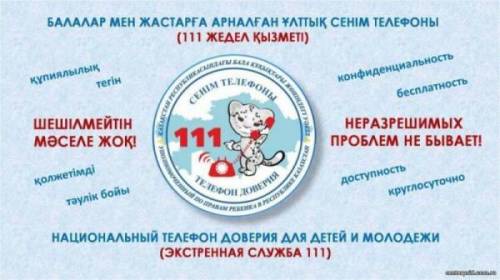
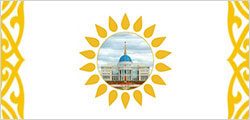
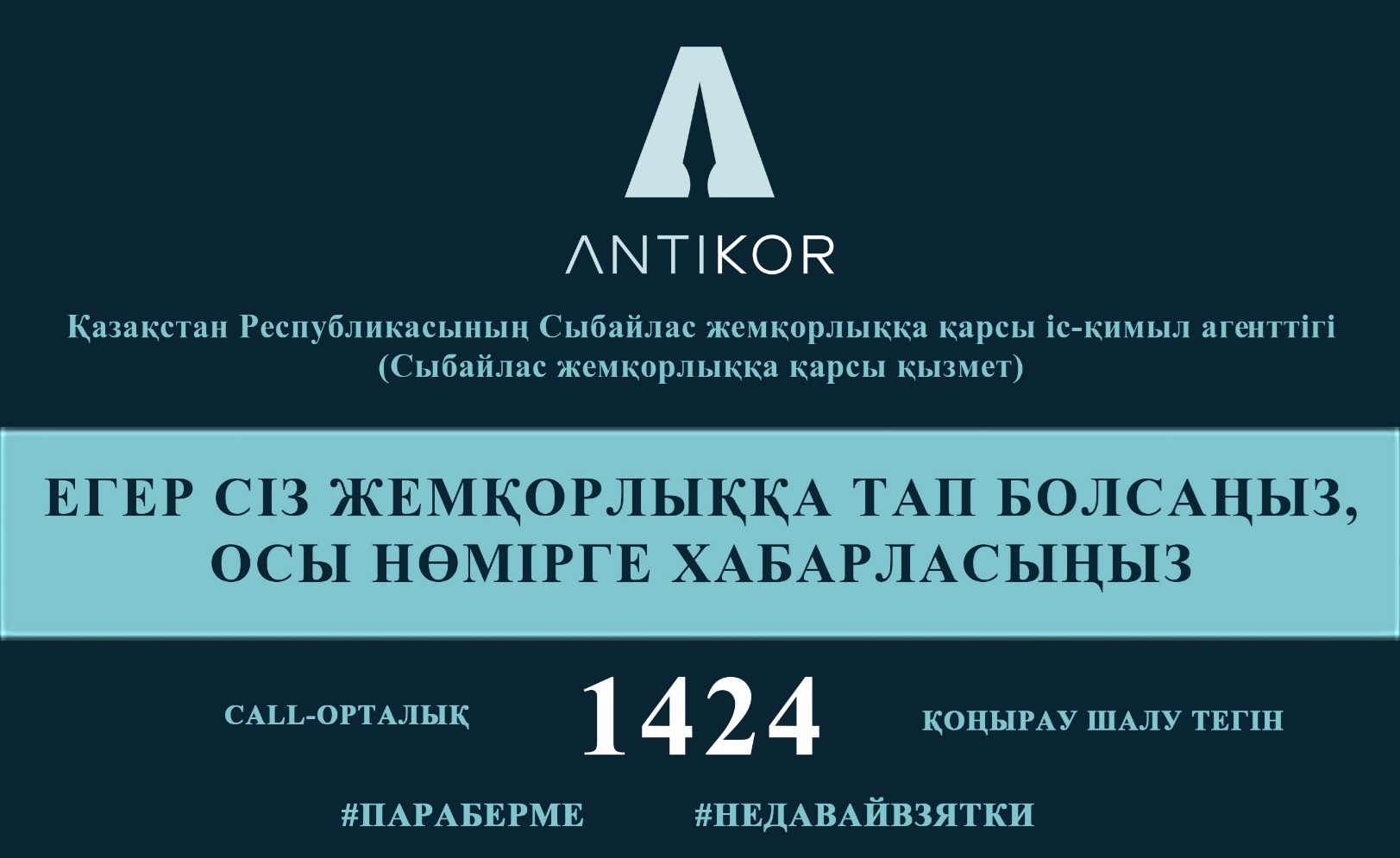
 Мектепке дейінгі балалар ұйымына жолдама қалай алуға болады
Мектепке дейінгі балалар ұйымына жолдама қалай алуға болады
 Мектепке тіркеу үшін құжаттарды қабылдау
Мектепке тіркеу үшін құжаттарды қабылдау

 Химия, биология және география...
Химия, биология және география...
